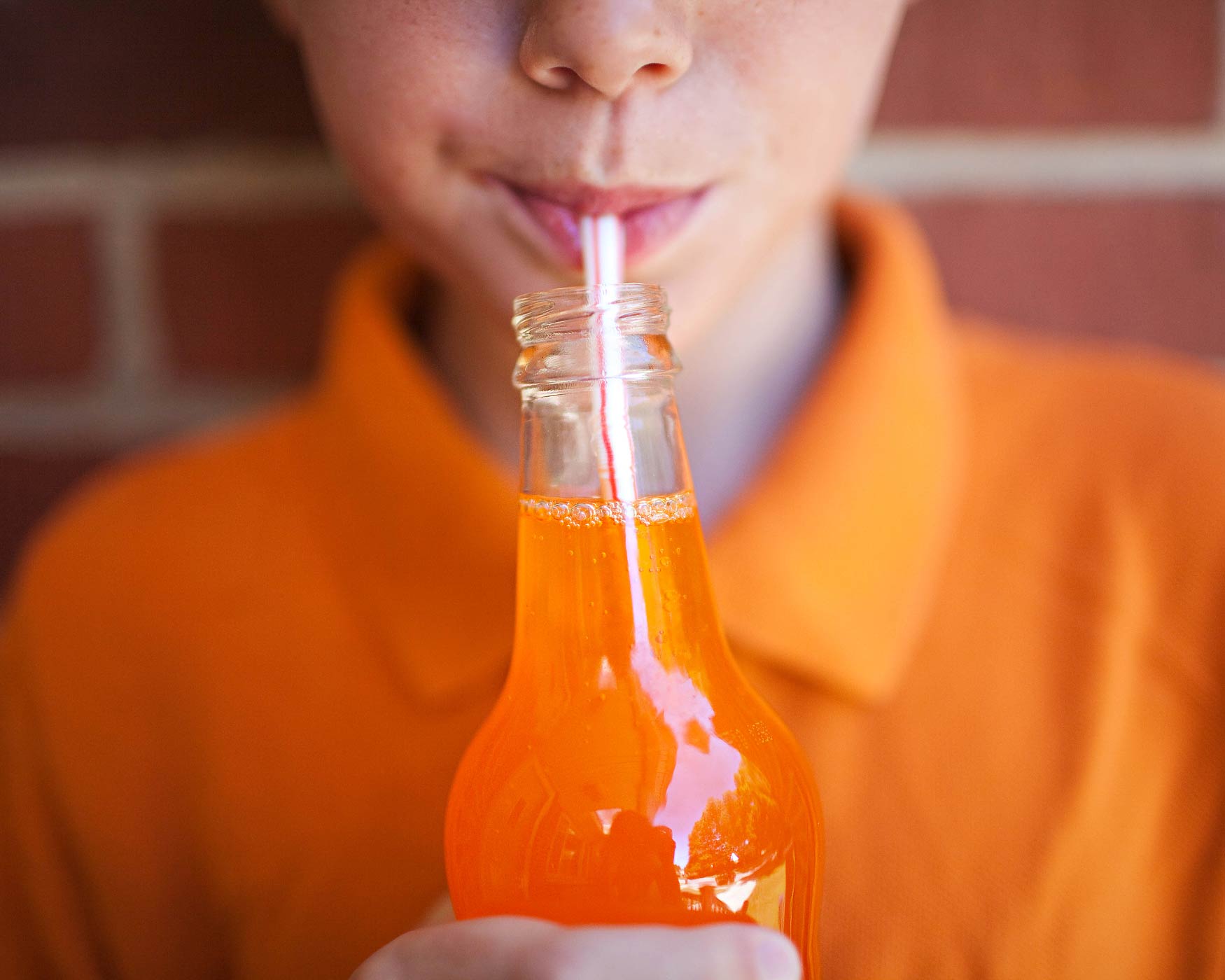
New evidence suggests fructose—the simple sugar present in fruit and fruit juices—may be messing with your brain and appetite in a way that actually makes you hungrier.
Dr. Kathleen Page, MD, assistant professor of medicine in the Keck School of Medicine of the University of Southern California, tested the idea when she fed 24 people a sugar-water mixture with one of two types of sugar: glucose or fructose. Each drink had 75 grams—about as much as your typical 24-ounce sugary drink, Page says. Then, she and her team performed an fMRI on the people in the study to see how their brains responded to the sugars, and showed them pictures of food (and non-food items as controls) while they were in the brain scan. Everyone had the chance to try both drinks on two different days.
MORE: There’s Even More Sugar In Soda Than You Think
After drinking the fructose mix, people had more activation in some brain regions involved in reward processing when they were looking at pictures of food, Page says, compared to after they consumed the glucose drink. “We think that it might suggest that fructose has less appetite-suppressing effects, and that in turn could motivate people to continue eating, even though they’ve already consumed quite a lot of calories when compared to glucose,” Page says. (For more on the difference between glucose, fructose and sucrose, read this piece about how all sugars aren’t the same.)
The findings are preliminary, but brains on glucose behaved as the scientists expected them to when they received an infusion of calories: with less activation in regions that control appetite. In other words, they were sated. Brains on fructose—which is far sweeter than glucose—just appeared to get hungrier.
MORE: How Sweet Can Become Toxic
Some experts contend that “sugar is sugar” and that it’s all equally bad for the body, but this study suggests that glucose and fructose might have very different effects because they’re processed differently in the body, says Page: Glucose is the main sugar that circulates in our bloodstream, and it’s metabolized in highly regulated ways, releasing hormones like insulin and leptin that help us feel full. Fructose, on the other hand, is extracted from our bloodstream directly to the liver, where it’s metabolized.
“Our bodies don’t secrete insulin and leptin as much as when we eat pure fructose,” she says. “We think that the differences in some of the responses of these hormones that are important in suppressing appetite may help to explain these findings.”
More Must-Reads from TIME
- Inside Elon Musk’s War on Washington
- Meet the 2025 Women of the Year
- The Harsh Truth About Disability Inclusion
- Why Do More Young Adults Have Cancer?
- Colman Domingo Leads With Radical Love
- How to Get Better at Doing Things Alone
- Cecily Strong on Goober the Clown
- Column: The Rise of America’s Broligarchy
Write to Mandy Oaklander at mandy.oaklander@time.com